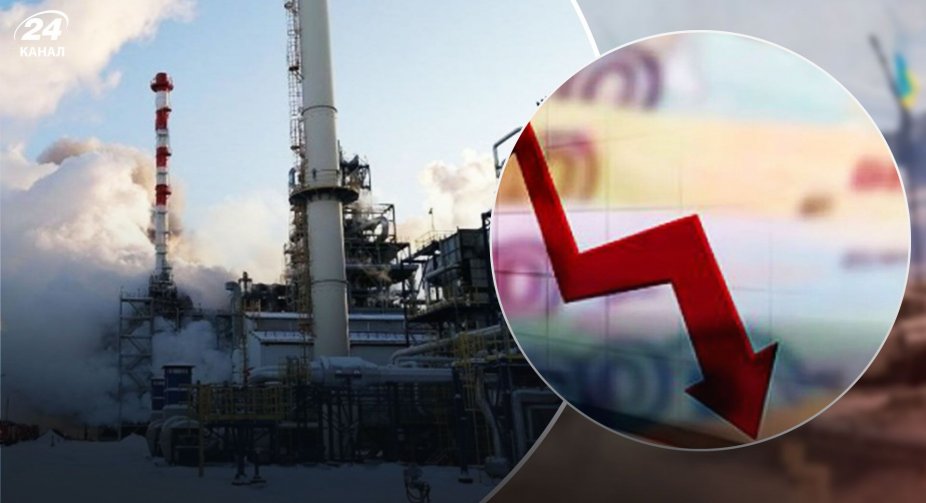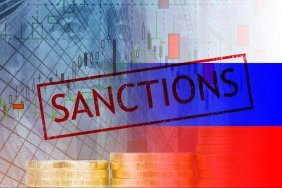The first months of Russia's invasion of Ukraine last year sent oil and natural gas prices soaring, giving Moscow a windfall. But those days are over.
This is reported by The Wall Street Journal.
With the war now in its second year and Western sanctions intensifying, Russia's government revenues are shrinking and its economy has shifted to a lower trajectory, perhaps in the long term, the article says.
The country's biggest export products, gas and oil, have lost their main buyers. State finances are strained. The ruble has fallen more than 20% since November against the dollar. The labor force has shrunk as young men go to the front or flee the country for fear of being called up. Uncertainty deters business investment.
"The Russian economy is entering a long-term regression," predicts Oleksandra Prokopenko, a former employee of the Russian Central Bank who left the country shortly after the invasion.
There is no indication that the economic difficulties are serious enough to pose a short-term threat to Russia's ability to wage war. But the lack of government revenue points to a deepening dilemma of how to reconcile bloated military spending with the subsidies and social spending that have helped President Vladimir Putin protect civilians from vagrancy.
Russian billionaire Oleg Deripaska warned this month that Russia is running out of cash. "There will be no money next year, we need foreign investors," the raw material tycoon said.
Having largely lost its European market and with the departure of Western investors, Russia is becoming increasingly dependent on China, realizing Moscow's long-standing fears of becoming an economic colony of its dominant southern neighbor.
"Despite Russia's short-term resilience, the long-term picture looks bleak: Moscow will be much more closed and overly dependent on China," said Maria Shagina, a senior researcher at the International Institute for Strategic Studies think tank in London.
Much of the murky outlook stems from Putin's failed bet last year that he could use Russian energy supplies to limit Western European support for Ukraine.
Instead of curbing their support for Kyiv, European governments quickly set about finding new sources of natural gas and oil. Most of the flow of Russian gas to Europe has stopped and after an initial jump, world gas prices have fallen sharply. Now Moscow says it will cut oil production by 5% by June, compared to previous levels. It sells its oil at a discount to world prices.
As a result, the government's income from energy resources in the first two months of this year was reduced by almost half compared to last year, and the budget deficit increased. The budget deficit reached $34 billion in these first two months, equivalent to more than 1.5% of the country's total output. This forces Moscow to dip into its sovereign welfare fund, one of the main anti-crisis buffers.
The government can still borrow domestically, and the national welfare fund still has $147 billion, even after it was cut by $28 billion before the invasion. Russia has found ways to sell its oil to China and India. China stepped in to supply many of the details that Russia had previously received from the West.
Russian officials have acknowledged challenges, but say the economy has adapted quickly. Putin said his government was effectively countering threats to the economy.
"You know, there is a principle: guns instead of oil," Putin said in an address to the nation last month. "Of course, national defense is the highest priority, but when solving strategic tasks in this area, we must not repeat the mistakes of the past and must not destroy our own economy."
For much of Putin's more than 20-year rule, high oil and gas revenues supported a social contract in which most Russians largely stayed away from opposition politics and protests in exchange for higher living standards.
The International Monetary Fund estimated that Russia's potential growth rate – the rate at which it could grow – was about 3.5% before 2014, when it seized Crimea. Some economists say that figure has fallen to around 1% as productivity declines and the economy becomes technologically backward and more isolated.
"For an economy like Russia, 1% is nothing; it doesn't even support the level," said Prokopenko, a former central bank official.
Falling exports, a tight labor market and increased government spending are adding to inflationary risks, the central bank said this month. Inflation in Russia in February was about 11% compared to the same month last year. According to the central bank, this indicator will temporarily fall below 4% in the coming months, although this is due to the high base of comparison of price growth after the invasion last year. A number of other economic indicators will also temporarily improve in the coming months due to such base effects, economists believe.
According to the Moscow-based Gaidar Institute of Economic Policy, the country's industry has experienced the strongest labor shortage since records began in 1993. According to the central bank, the brain drain following the invasion and the military mobilization of 300,000 people last fall has left about half of businesses facing labor shortages. Locksmiths, welders and mechanics are in high demand.
A great increase in industrial production is now taking place at the expense of factories producing rockets, artillery shells, and military clothing, replacing the vast quantities used during the war. According to Putin, some factories are working in multiple shifts to cope with demand.
Military production masks problems. "This is not real productive growth. It does not develop the economy," said Ms. Prokopenko.
Russia managed to avoid the worst of last year, which was initially helped by high global energy prices. According to official data, gross domestic product fell 2.1%, far less than some early forecasts of a 10-15% drop.
Gas exports to Europe began to decline only last summer. The EU's ban on Russian offshore oil and the G7's price cap came into effect only in December. Sanctions on petroleum products such as diesel went into effect last month. Those delays have kept energy revenues up and helped the government roll out massive fiscal stimulus of about 4 percent of GDP in 2022, according to the IMF.
However, in January and February of this year, tax revenues from oil and gas, which make up almost half of all budget revenues, fell by 46% compared to the same period last year, and government spending jumped by more than 50%.
Analysts estimate that Russia's budget-breakeven oil price, which it needs to break even, has risen to $100 a barrel as the cost of the war falls on the budget.
According to the Treasury Department, Urals crude averaged $49.56 a barrel in February, trading at a deep discount to benchmark Brent crude, which was around $80 a barrel that month, although some analysts say the difference is smaller. . Last month, the government changed its oil tax formula to get more from producers.
"Now Russia has less bargaining power in the world oil market because it has much less choice of where to supply oil," said Astrov, an economist at the Vienna Institute.
Consumers also suffer. According to official data, retail sales fell 6.7% in 2022, the worst since 2015. According to the Moscow Association of European Business, the sale of new cars in February fell by 62% compared to the same period last year.
This year, most analysts expect another drop in GDP, although some, including the IMF, predict modest growth.
But the fund said that by 2027, output is forecast to be about 7% lower than pre-war projections. "Loss of human capital, isolation from global financial markets and limited access to advanced technologies will hinder the development of the Russian economy," the IMF said.
Rystad Energy, a consulting firm, expects investment in Russian oil and gas exploration and production to fall to $33 billion this year from a projected $57 billion before the invasion. This would mean less production in the future. According to BP PLC analysts, total oil production in Russia, which in 2019 was about 12 million barrels per day, will decrease to 7-9 million barrels per day by 2035.
"We are not talking about a one- or two-year crisis," Astrov said. "The Russian economy will follow a different trajectory."
Earlier, Bloomberg reported that Russia is hiding an unprecedented third of its budget spending, which is a convincing indicator of how a year of war against Ukraine has changed public finances and economic priorities.

